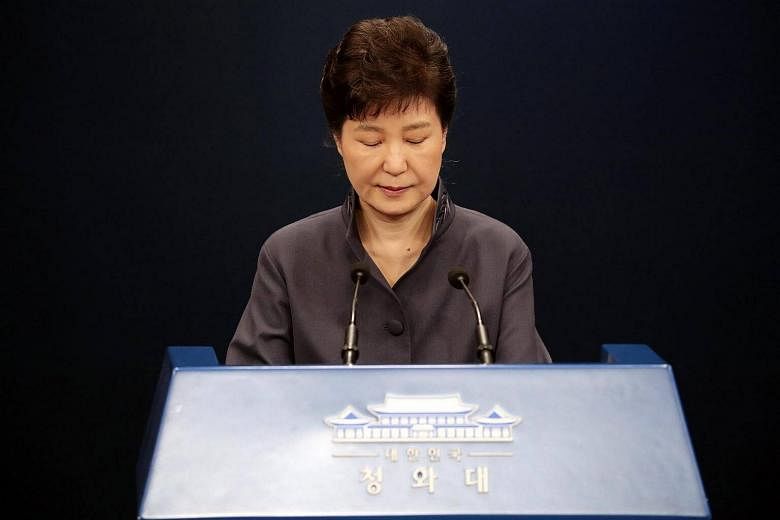WASHINGTON • The South Korean media has portrayed Ms Choi Soon Sil as a Rasputin-like figure who wielded an unhealthy influence over President Park Geun Hye.
Ms Choi is the daughter of the late Choi Tae Min, a kind of shaman-fortune teller who was close to Ms Park's father, Mr Park Chung Hee, the military dictator who ruled South Korea during the 1960s and 1970s.
The senior Choi, who founded a religious cult that melds Christianity, Buddhism and other practices, was likened in a leaked United States State Department cable to a "Korean Rasputin".
After Ms Park's mother died in an assassination, he reportedly conveyed the mother's messages to Ms Park from the afterlife.
But for all the alleged misdeeds, Ms Park is hardly the only world leader in the modern era to confide in those who dabble in the occult.
Before the modern era, the fate of whole kingdoms could rest on the augurs of soothsayers and the prophecies of astrologers. Such figures lingered into the 20th century.
Most infamously, Grigoriy Rasputin, a wandering peasant and self-proclaimed holy man, infiltrated the court of the last Russian czar, Nicholas II, and wielded unusual power over him and his wife until other irked royals arranged for his assassination.
Rasputin's name became shorthand for an adviser shrouded in mystery and bent on various self-serving schemes.
The Nepali monarchy, until its dissolution in the last decade, maintained a whole cadre of court astrologers and advisers who, among other things, persuaded the country's ruling royals to conduct affairs of state only on auspicious days.
In 2008, the ousted King Gyanendra was compelled to consult astrologers during his house hunt after it became clear he would have to quit the sprawling royal palace in Kathmandu.
Former Sri Lankan president Mahinda Rajapaksa, a fearsome leader who critics accused of turning into a would-be autocrat, had his own astrologer, Mr Sumanadasa Abeygunawardena, who supposedly predicted Mr Rajapaksa's earlier electoral victories in 2005 and 2010, and persuaded the Sri Lankan leader to announce snap elections last year.
When Mr Rajapaksa lost, his astrologer suggested that the defeat had been written in the stars.
"If I did not tell him he was going to win, he would have been psychologically shattered. His defeat would have been much worse," Mr Abeygunawardena told Agence France-Presse after the election.
"In this case, the opponent's horoscope is more powerful than that of Our Sir."
In parts of West Africa, widespread local belief in juju - or a kind of voodoo, or magic - surfaces periodically in scandals and political intrigues.
In 2014, a female senior adviser to Sierra Leone's president summoned top traditional healers after finding a "hex" made of horns, cowrie shells, monkey hair and other bits of animal matter by her house.
In 2008, the former president of Nigeria accused a political rival of scheming with an Islamic seer.
WASHINGTON POST

